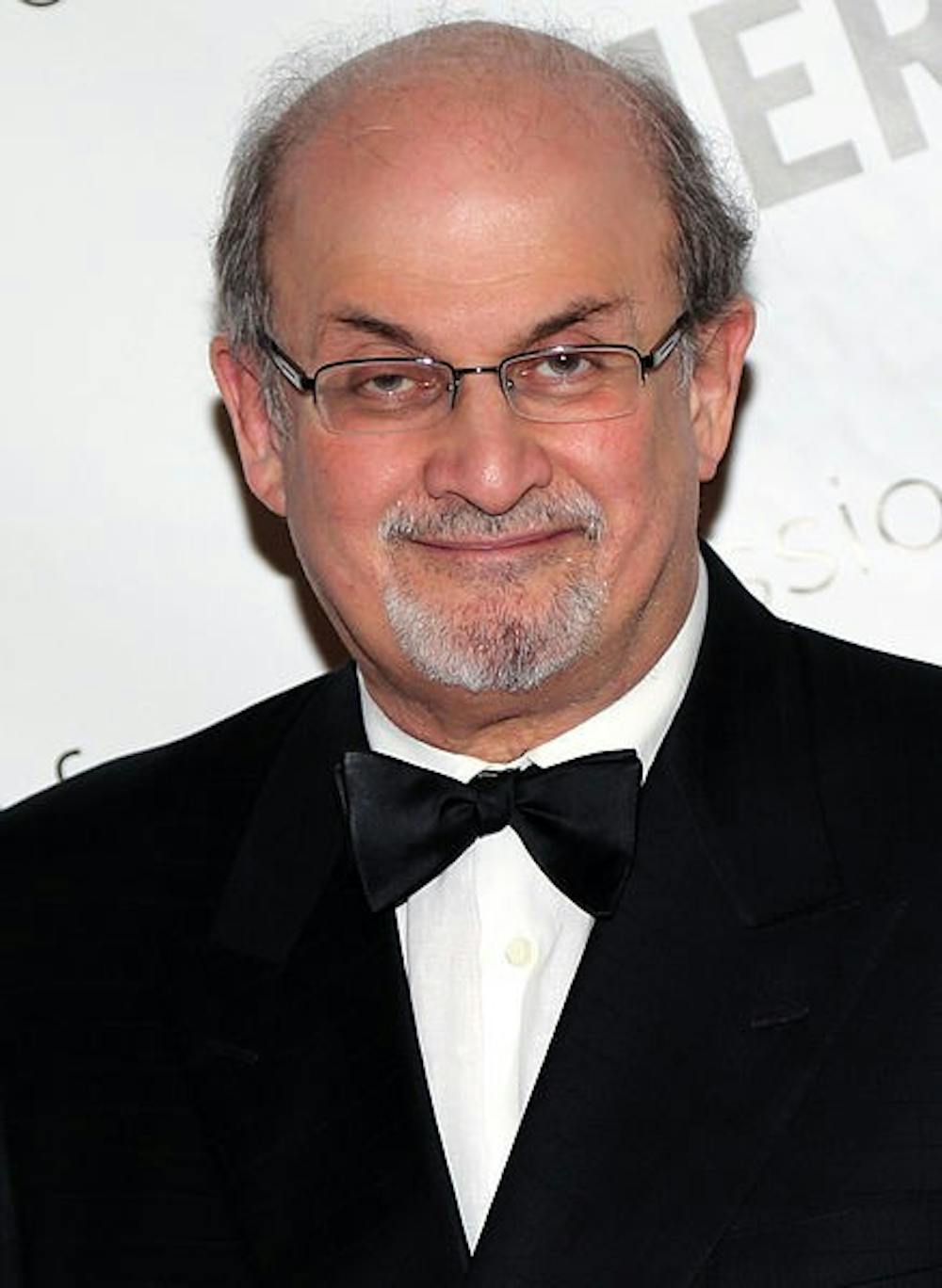In 1989, the Iranian government shocked the world by issuing a fatwa ordering the execution of British-Indian author Salman Rushdie. In his novel “The Satanic Verses,” Rushdie had outraged the nation’s Islamic government by lewdly depicting the prophet Muhammed. The author was forced into hiding for years.
Last week, Rushdie spoke in Charlottesville as part of “Human / Ties,” a celebration for the 50th anniversary of the National Endowment for the Humanities. When asked what it was like to go undercover, Rushdie described the experience as “bad for your social life.”
Rushdie, now nearing 70, has built a career around irreverence and a disregard for convention. He can be impulsive and flippant, and over the course of an hour-long conversation with Prof. Suketu Mehta of New York University, the revered author spouted off on everything from Twitter to trigger warnings to Republican nominee Donald Trump.
For example, Rushdie referred to the U.S. citizenship test as “the thing that Mr. Trump probably can’t pass,” and unequivocally called the presidential hopeful a “moron.”
When asked about the use of the surreal in his writing, Rushdie defended his fantastical tendencies by simply saying, “I want to make s—t up.”
Rushdie is most famous for being inflammatory and insulting, for violently eschewing tradition. Yet to think of Rushdie as nothing more than a sensationalist curmudgeon belies his deep thoughtfulness and respect for the art of storytelling. Though he pulled no punches in his assessment of Trump, Rushdie also offered astute commentary on the nature of authoritarian governance, and the role the humanities can play in affecting national discourse.
“The writer is the voice that nobody owns,” Rushdie said.
According to the author, writers and journalists have the power to undermine the influence of authoritarian leaders by disputing their proposed narrative. Writing in opposition to authoritarians, according to Rushdie, means “contesting the thing which is most important to them — which is to control the narrative.” This is how Rushdie sees the world — in terms of narrative, in terms of stories.
Additionally stimulating were Rushdie’s comments regarding his experience as an immigrant coming to America. In his life, Rushdie has lived, to use his own words, “the wanderer experience,” migrating from country to country, acutely aware of the world in a global sense.
“The story of everywhere is somehow affected by the story of everywhere else,” Rushdie posited during his presentation.
Despite his own globally-oriented sensibilities, Rushdie lauded the merits of a more provincial mindset as well.
“I often envy those writers who have had the opposite life experience from mine, who have been deeply rooted to one place,” Rushdie said, citing William Faulkner as a specific example.
The distinction highlighted Rushdie’s respect for storytellers of all stripes.
Throughout the presentation, he reminded the audience of his position not as an academic but as a writer. He communicated clearly, in simple and engaging language, entirely avoiding academic jargon. His eyes lit up when relaying an old tale about writer Norman Mailer, and he enthusiastically detailed an encounter between himself and Trump at the U.S. Open. These little snippets became meaningful comedic yarns in Rushdie’s eloquent hands.
The author presents a complicated figure, brash yet thoughtful, impudent yet undeniably appealing. The author’s joyful anecdotes and illustrative comments about politics and the immigrant experience shone through his abrasive veneer at the Paramount, highlighting his splendid talent.
To Salman Rushdie, the world is a collection of floating, interactive stories — and fortunately, Salman Rushdie is a wonderful storyteller.






